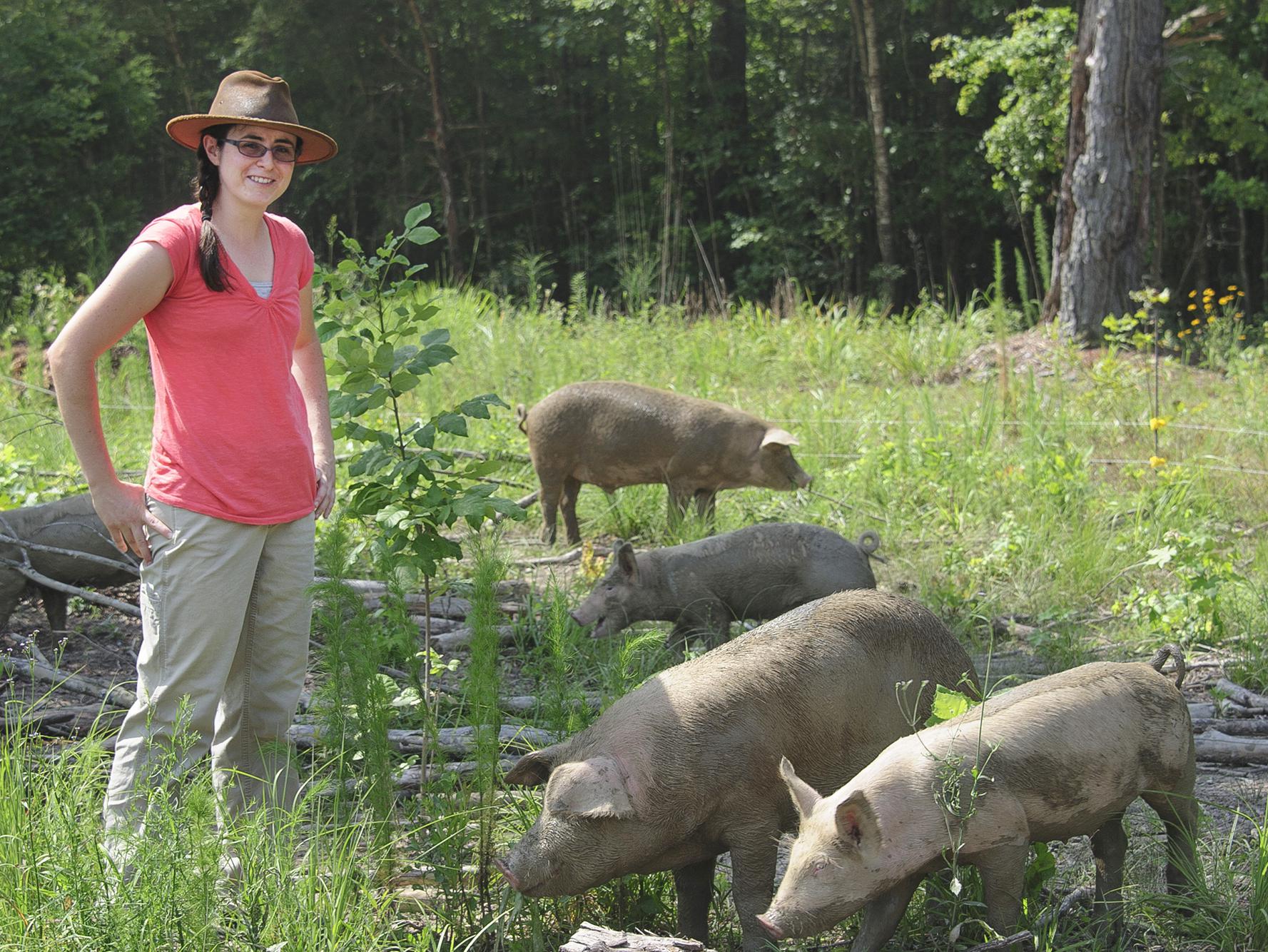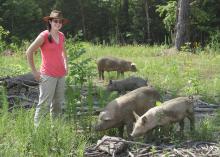Information Possibly Outdated
The information presented on this page was originally released on February 2, 2017. It may not be outdated, but please search our site for more current information. If you plan to quote or reference this information in a publication, please check with the Extension specialist or author before proceeding.
Love for environment motivates ‘local’ farmer
CEDAR BLUFF, Miss. -- Ali Fratesi Pinion may be part of the millennial generation, but she farms more like her great-grandparents.
Pinion and her husband, Dustin, operate Beaverdam Farms in Clay County on the principle that healthy soils create better foods and communities. The Pinions have modeled their farm after a successful project in Virginia that emphasizes building up the soil, capturing carbons and feeding local communities.
“We started farming to do better for the environment. I love growing my own food. We started with vegetables, but when we realized how much land we could restore, we were hooked on chickens and pigs,” she said. “We wanted locally grown, healthy meat from healthy land. The only preservatives in our meat are salt and sugar, which man has been using for centuries.”
In the past, Pinion raised chickens in cattle pastures to foster a mutually beneficial relationship. Cattle grazed the grass down, while the poultry ate bugs and helped spread the manure. The birds also contributed to the fertility of the soil.
The lack of access to a U.S. Department of Agriculture-inspected meat processor made using chickens too difficult. The nearest facility to process poultry meat is in Arkansas, eight hours away.
“Now, we are only raising pigs. When raised on pastures with plenty of sunshine, pigs have the highest content of vitamin D compared to other traditional meat animals,” she said. “We move them to a fresh paddock every two weeks to reduce soil damage. Land needs a little disturbance, but not too much. The pigs help make the forest more diverse and increase the soil fertility with their manure and turning (composting) leaves into the soil.”
Alison Buehler met Pinion through a nonprofit group that connected agricultural producers with people who want local, healthy food.
“I was a special education teacher, my husband is a physician, and we realize that the quality of food impacts the health and well-being of our children,” Buehler said. “I know that Beaverdam Farms provides food that I can trust and that is healthy for my kids.”
Buehler said the farm’s philosophy supporting the “triple bottom line” is obvious in the way they conduct themselves.
“Producers who focus on the triple bottom line place emphasis on human health, the environment and money (profitability),” she said. “I’m impressed that people as young as the Pinions took the initiative to find a successful model and bring it back to Mississippi.”
Sylvia Clark coordinates the Mississippi Women for Agriculture Annie’s Project program, which is designed to increase the knowledge and skills of women in all aspects of farm and agribusiness management. The Mississippi State University Extension Service manages the program.
“Ali was already dreaming of her agricultural future when she was a student at Mississippi State University in landscape architecture,” Clark said. “Today, she reflects the attitudes and priorities of so many millennials who want healthy and local food options and who place priority on protecting the environment.”
Clark said she expects to see more farmers, especially women, working toward similar agricultural goals.
“There has been a resurgence of farmers markets in communities around the state,” Clark said. “Market success requires two things: consumers who want locally grown produce and farmers who can provide quality products.”
Pinion sells her products at a variety of locations, including farmers markets in Starkville, Columbus, Jackson and Oxford. They deliver products from their online farmers market to those cities, along with Meridian, Tupelo, Southaven and Hernando. View their online market at http://www.beaverdamfreshmarket.com/.



